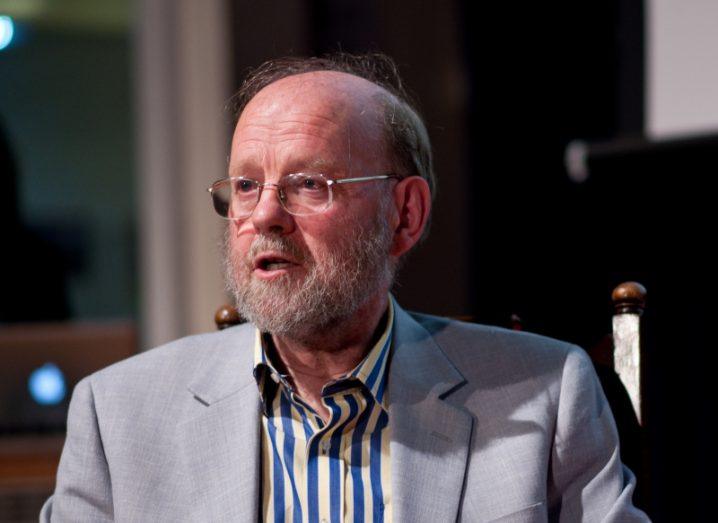
Prof Sir Ian Wilmut in 2013. Image: Mihaela Bodlovic via Flickr (CC BY-NC-ND 2.0)
Wilmut’s research was central to the birth of Dolly in 1996, which opened up new possibilities in science, including the development of personalised stem cells.
Prof Sir Ian Wilmut, the scientist who led the team that cloned Dolly the sheep, has died at the age of 79.
The announcement was made by the University of Edinburgh, which Wilmut joined in 2005. He stayed with the university until 2012 and was the first director of its MRC Centre for Regenerative Medicine.
“Sir Ian will long be remembered for his vast contributions to the field of science and across the university,” the university said in a statement. “He will be greatly missed. Our thoughts remain with his wife, family and friends at this time.”
Wilmut was a world-renowned embryologist and specialist in regenerative medicine. Some of his early work involved the preservation of semen and embryos by freezing, when he worked under the supervision of Prof Christopher Polge at the University of Cambridge.
At Cambridge, Wilmut’s work led to the birth of Frostie, the first calf to be born from a frozen embryo. But his most famous work was at The Roslin Institute, where his research on cloning techniques led to the birth of Dolly in 1996. This was the first mammal to be cloned from an adult cell and was a breakthrough result at the time.
“Her birth proved that specialised cells could be used to create an exact copy of the animal they came from,” the University of Edinburgh said. “This knowledge changed what scientists thought was possible and opened up a lot of possibilities in biology and medicine, including the development of personalised stem cells known as iPS cells.”
Prof Bruce Whitelaw, the Director of the Roslin Institute at the University of Edinburgh, said Wilmut’s reach was “global” and that the work his team did with Dolly created a lot for the institute, the University of Edinburgh and for “science in general”.
“We have lost one of the best-known science pioneers,” Whitelaw said.
Wilmut’s work continued after the creation of Dolly, however. The University of Edinburgh said he worked with a group investigating the molecular mechanisms that regulate cell reprogramming, with the aim of “increasing the efficiency and accuracy of this process”.
After he was diagnosed with Parkinson’s disease in 2018, the university said Wilmut became a patron of a research programme that aimed to create a new generation of therapies to slow the progression of the disease.
10 things you need to know direct to your inbox every weekday. Sign up for the Daily Brief, Silicon Republic’s digest of essential sci-tech news.
Prof Sir Ian Wilmut in 2013. Image: Mihaela Bodlovic via Flickr (CC BY-NC-ND 2.0)






